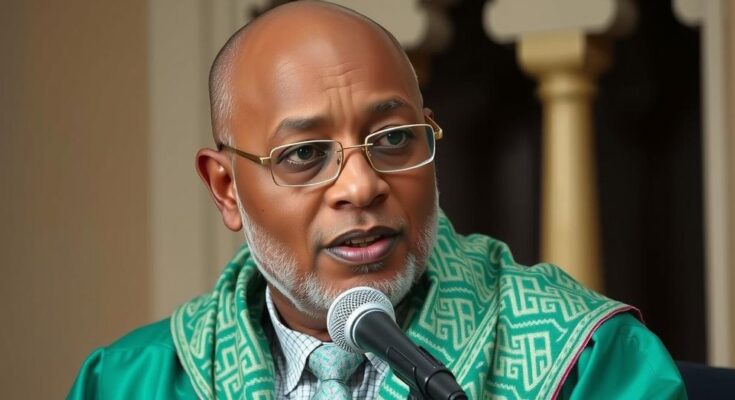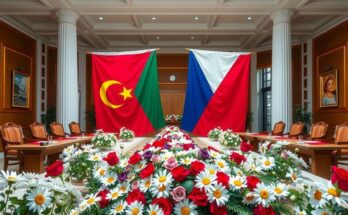Mohamed Takala, rival Head of the HCS, rejected the Bouznika meeting, asserting participants were not officially representative of the HCS. He urged Libya’s Foreign Ministry to protest with Morocco to prevent uncoordinated discussions. Despite a determination to form a unified government, the meeting raises concerns regarding political legitimacy and internal divisions, diverging from UN-led initiatives toward elections.
Mohamed Takala, acting in his role as the rival Head of the High Council of State (HCS), has expressed his disapproval of the recent meeting convened in Bouznika, Morocco. This meeting, which involved members of both the HCS and the House of Representatives (HoR), was deemed illegitimate by Takala, who asserted that those attending did not have official representation from the HCS. He has urged Libya’s Foreign Ministry to lodge a formal protest with Morocco’s Foreign Ministry to prevent future gatherings that lack coordination with the HCS’s elected presidency. Takala highlighted the ongoing internal schisms and potential for political manipulation surrounding such meetings.
In the Bouznika meeting, representatives from the HoR and HCS, including competitor Khalid Al-Mishri, reached an agreement to create a unified government and establish committees aimed at addressing contentious issues within the realms of security, finance, and economics. However, this collaborative effort was perceived as an attempt that diverges from the UN mission’s intended approach to revitalize Libya’s political landscape and encourage inclusive participation from all political entities, paving the way toward elections.
The political landscape in Libya has been marked by divisions between the High Council of State (HCS) and the House of Representatives (HoR). As efforts are made to establish a unified government, meetings like the one in Bouznika come into scrutiny. These discussions often raise questions regarding legitimacy and representation since many factions operate independently of the recognized political structures. The rejection of the Bouznika meeting by Takala underscores the fragility of Libya’s political unity and the necessity of coordinated dialogue involving all legitimate representatives of the state.
In conclusion, Mohamed Takala’s rejection of the Bouznika meeting signifies a critical moment in Libya’s ongoing struggle for political unity. By insisting that any discussions require the endorsement of the elected HCS presidency, Takala emphasizes the necessity for legitimacy and coordination in Libya’s political processes. As various factions attempt to navigate the complexities of governance, the overarching goal remains clear: to stabilize the country and move toward democratic elections.
Original Source: libyaobserver.ly




